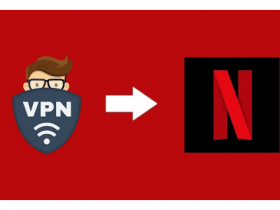Mobile apps are becoming increasingly important to businesses today, but finding a reliable contractor is no easy task. What should you look at when choosing a developer? This algorithm allows you to speed up your search, choose a contractor, and sign a mobile app development partnership agreement.
Users are already spending 3 hours per day on apps ─ and 10% more every year. At the same time, not all apps are successful, nor are all startups. Up to 70% of tech startups fail for one reason or another, such as a lack of market demand or lack of funds for development.
The path to choosing an implementer
The following tips are true when the business task and budget are defined; all that remains is to find an implementer. If for mobile app development, you first need to determine the budget, it is easiest for the customer to find similar apps and ask for an estimate from their mobile developers. If the company has relevant experience, even during the first talks, you can find out what the minimum budget for mobile app development should be.
Step one. Identifying candidates
As a rule, performers are searched for using the following sources:
- mobile app development cases;
- recommendations from friends;
- business contacts acquired at trade shows;
- personal contacts.
If you are faced with the task of finding a contractor, study the activities of each company you choose. Visit the website, look at the portfolio, and try to estimate the scale of the work. Find the company’s social networking group or the profiles of its executives to make sure it is a current market player.
Important evaluation criteria:
- Whether the company has recommendations from peers in your field of business;
- If the company has relevant or similar experience in mobile app development;
- evidence of the company’s practical activity, the presence of relevant news on social networks;
- the company’s maturity.
If you are ready to work with the company, enter its name and contact information into the report. After that, you can send your request to each of the participating companies.
Step two. Gathering commercial proposals
The success of your project depends on how well the commercial proposals are gathered. Here it is important to assess resources and provide all candidates with the same information about the planned project.
If all participants have different views on implementing your ideas, you will end up with completely different figures. At the same time, a high cost of services does not guarantee that your project will not go beyond the planned budget after considering all the specifics of your idea. Likewise, a low cost of services is not an indicator of risk; it does not mean that the estimate is underestimated or that there will be some kind of problems during mobile app development.
Bidders can present the composition of the work in their own way and choose different implementation technologies, and this is a bad thing. For example, someone may offer native mobile app development, and someone may offer cross-platform. Each developer will offer a different cost of services, and each option will have its pros and cons, which are determined by the technology used.
There are times when the customer comes up with new ideas on the project after they have sent the developers their requests. In this case, all the clarifications and ideas should be sent out again to all participants. This will allow outsourcers to adjust their proposals - they will be more relevant, which then reduces the likelihood of disputes or conflicts.
Step three. Negotiating mobile app development
After submitting your requests, you move on to the next step - holding talks and rallies with developers. The teams will present themselves and ask you questions. Your goal ─ is to determine which companies have their own resources to complete your project and which delegate tasks to their contractors.
Ask a few questions to minimize major risks:
- Does the company have its own development staff? Does it involve subcontractors or freelancers in its projects?
- Is the company willing to provide access to the project’s task tracker?
- Is the company willing to connect you to team rallies?
- Does the company provide source code in the form of a repository?
- Does the company currently have free resources to implement your project?
- Will the company do all the components of your project (server, CMS, mobile, and web clients) itself? Or will another partner be brought in?
The involvement of another partner is a risk, even if the company has completed similar projects in the past with the help of one or another contractor.
Step four. Filtering commercial proposals
Once you have received a sufficient volume of proposals and conducted initial negotiations, you can begin to filter the bidders.
First, exclude companies that have risk criteria. For example:
- Hiding team information;
- Lack of access to the task-tracker and rallies;
- have doubts about the company’s competence, etc.
Don’t choose a team with risky parameters just because you liked talking to them. You should not delude yourself that in your case everything will be fine.
At this stage, it is advisable to leave no more than 2-3 potential performers. Invite other participants to make a rough work plan (roadmap) for the project and then meet with the team that will do mobile app development. With the help of the roadmap, you and the executor will be able to plan the work and the necessary resources. And with the help of communication with the potential team, you will understand the competence of specialists and increase the likelihood of the project’s success.
If some of the components of the system will be made by someone other than the principal contractor, it is advisable to invite them to the discussion, too.
Step five. Deciding
At the final stage, you need to decide. Naturally, this can be influenced by a variety of factors, including the timing and budget of mobile app development, the team’s approach to the work, and your general impressions of the communication. Assess all the information and potential risks.
In the case of mobile app development, parameters such as the company’s mix of resources and abilities carry the most weight. At the same time, you should feel comfortable communicating with the executor as equals.
To sum up
There are many studios on the market that are engaged in mobile app development. But in practice, it is difficult to find a reliable team. You may want to pay attention to the service market from the Middle East. Companies from this region are ready to provide high-quality services at a lower price. The pricing of these companies is connected with the peculiarities of taxation, employees’ salaries, and other nuances that are in no way connected with the level of programmers’ skills.
The described algorithm will help you to save time when selecting an executor and release the app on time and without unforeseen situations.









